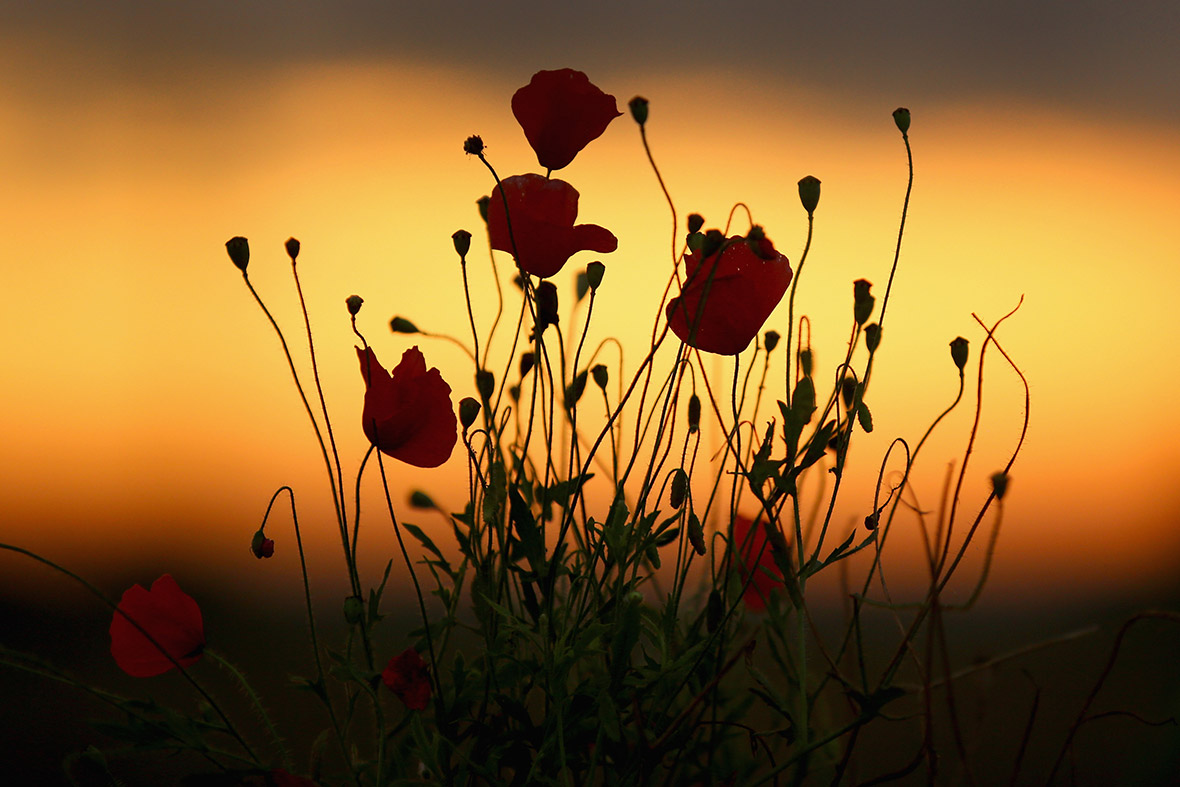 Wild poppies grow on the verge of a Flanders field near Passchendaele as dawn breaks on the centenary of the Great War. Getty
Wild poppies grow on the verge of a Flanders field near Passchendaele as dawn breaks on the centenary of the Great War. Getty
In Flanders fields the poppies blow
Between the crosses, row on row,
That mark our place; and in the sky
The larks, still bravely singing, fly
Scarce heard amid the guns below.
We are the Dead. Short days ago
We lived, felt dawn, saw sunset glow,
Loved and were loved, and now we lie
In Flanders fields.
Take up our quarrel with the foe:
To you from failing hands we throw
The torch; be yours to hold it high.
If ye break faith with us who die
We shall not sleep, though poppies grow
In Flanders fields.
Lieutenant-Colonel John McCrae, Canadian physician

The setting sun creates long shadows at Sanctuary Wood Military Cemetery in Ypres. Getty

The morning sun falls on the fortified Advanced Dressing Station, near Essex Farm Cemetery in Ypres, where Canadian doctor Lieutenant Colonel John McCrae treated the wounded and is believed to have composed his famous poem 'In Flanders Fields' after burying his friend, Lieutenant Alexis Helmer, on 3 May 1915. Getty
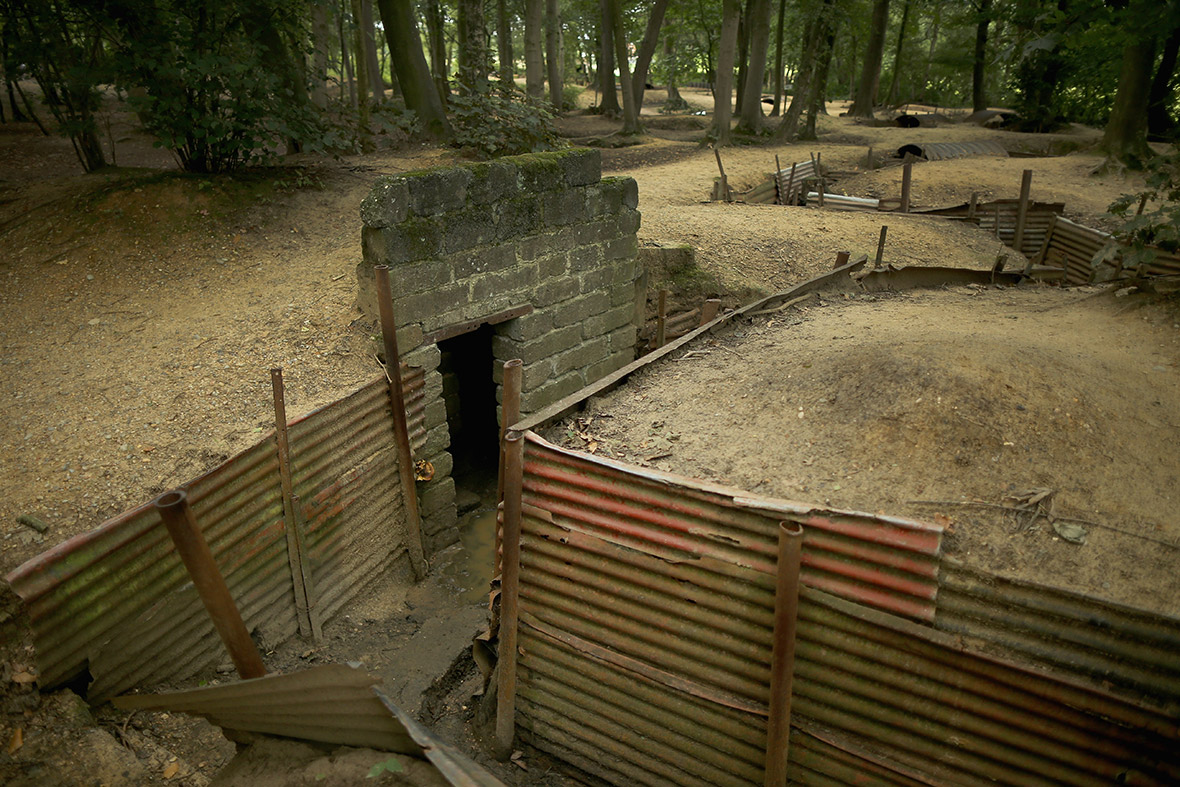
A preserved WWI trench system is pictured in Sanctuary Wood in Ypres. Getty
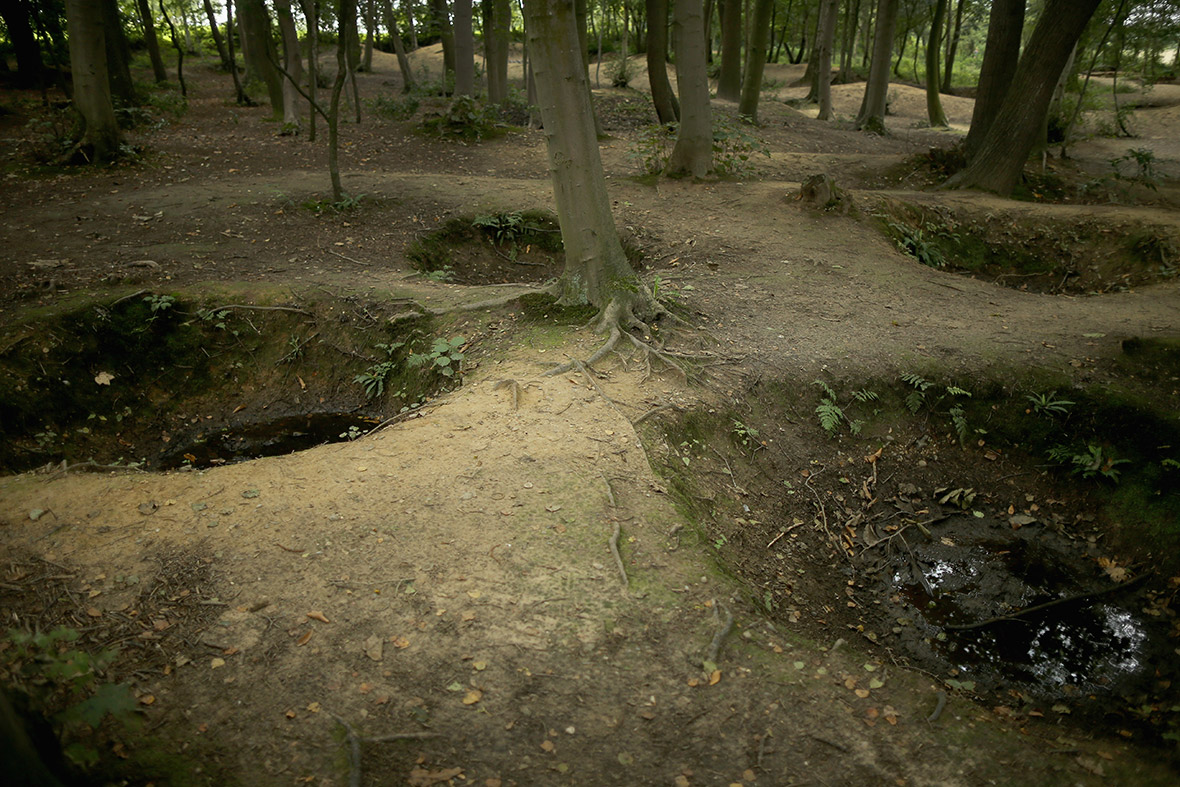
Bomb craters scar the woodland floor in the preserved Sanctuary Wood. Getty
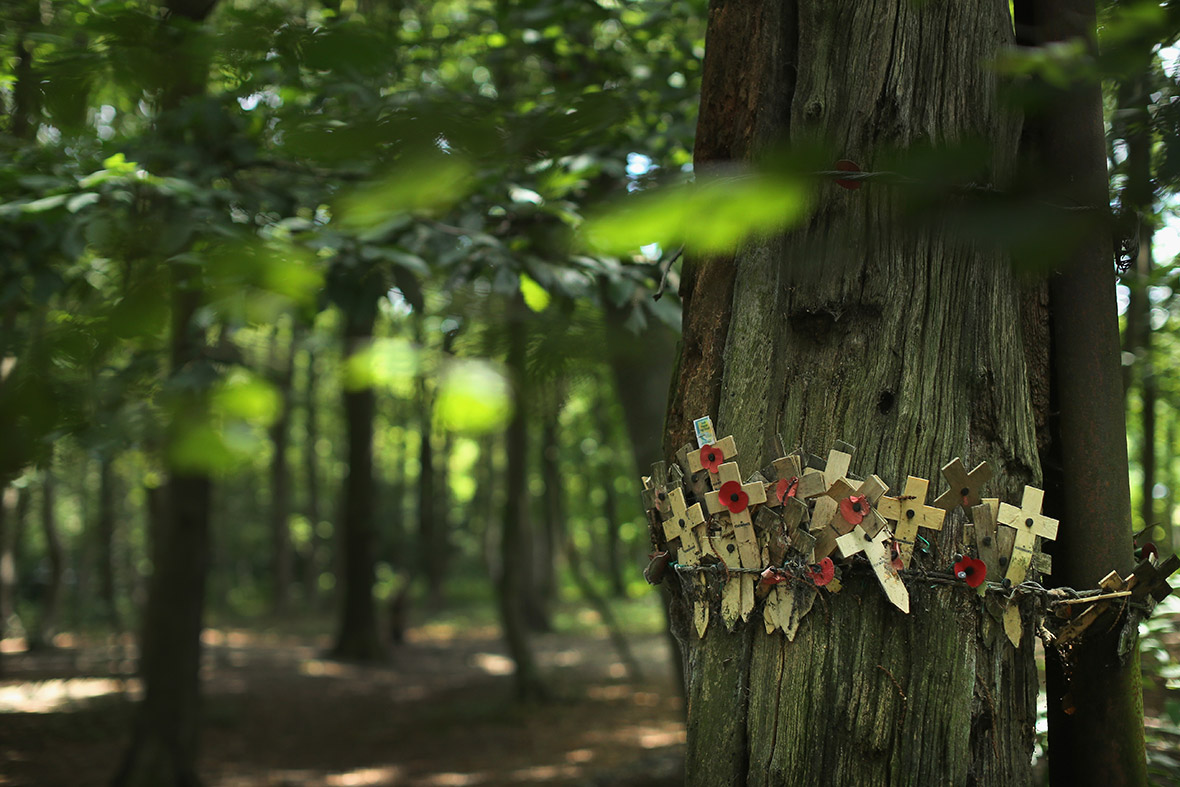 A surviving tree, damaged in the Great War, is covered in tributes. Getty
A surviving tree, damaged in the Great War, is covered in tributes. Getty
Ypres was the centre of five battles between German and Allied forces from 1914 to 1918. The deadliest of these was the Third Battle of Ypres or the Battle of Passchendaele, between July and November 1917.
Casualty numbers are disputed, but it is thought that around 325,000 Allied and 260,000 German troops lost their lives.
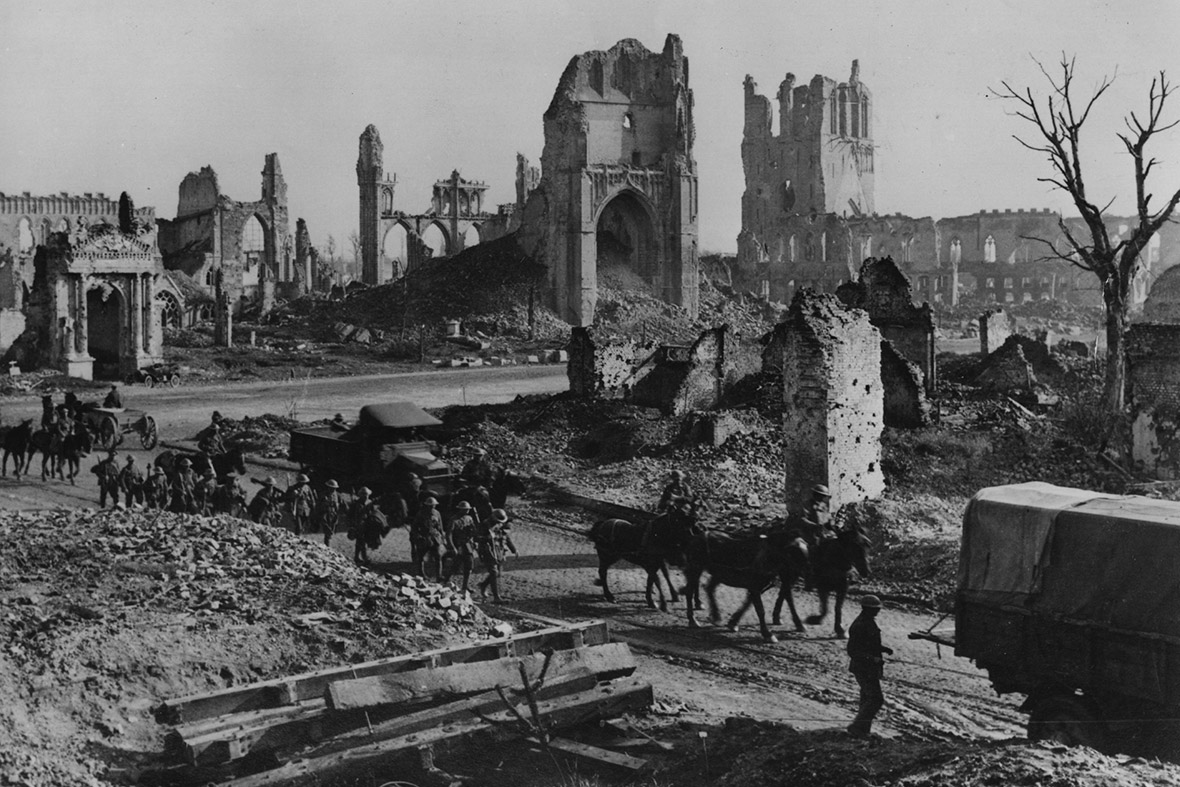 5 January 1917: Soldiers march past the ruins of St Martins Church and Cloth Hall in Ypres. Getty
5 January 1917: Soldiers march past the ruins of St Martins Church and Cloth Hall in Ypres. Getty
 5 October 1917: Australian troops march towards the front line to relieve their comrades, who had won Broodseinde Ridge the previous day, during the Battle of Passchendaele. Getty
5 October 1917: Australian troops march towards the front line to relieve their comrades, who had won Broodseinde Ridge the previous day, during the Battle of Passchendaele. Getty
 11 November 1917: Soldiers pose for a photo near the ramparts at Ypres the day after British, Canadian, ANZAC, and French forces finally recaptured the Passchendaele Ridge east of Ypres. Getty
11 November 1917: Soldiers pose for a photo near the ramparts at Ypres the day after British, Canadian, ANZAC, and French forces finally recaptured the Passchendaele Ridge east of Ypres. Getty
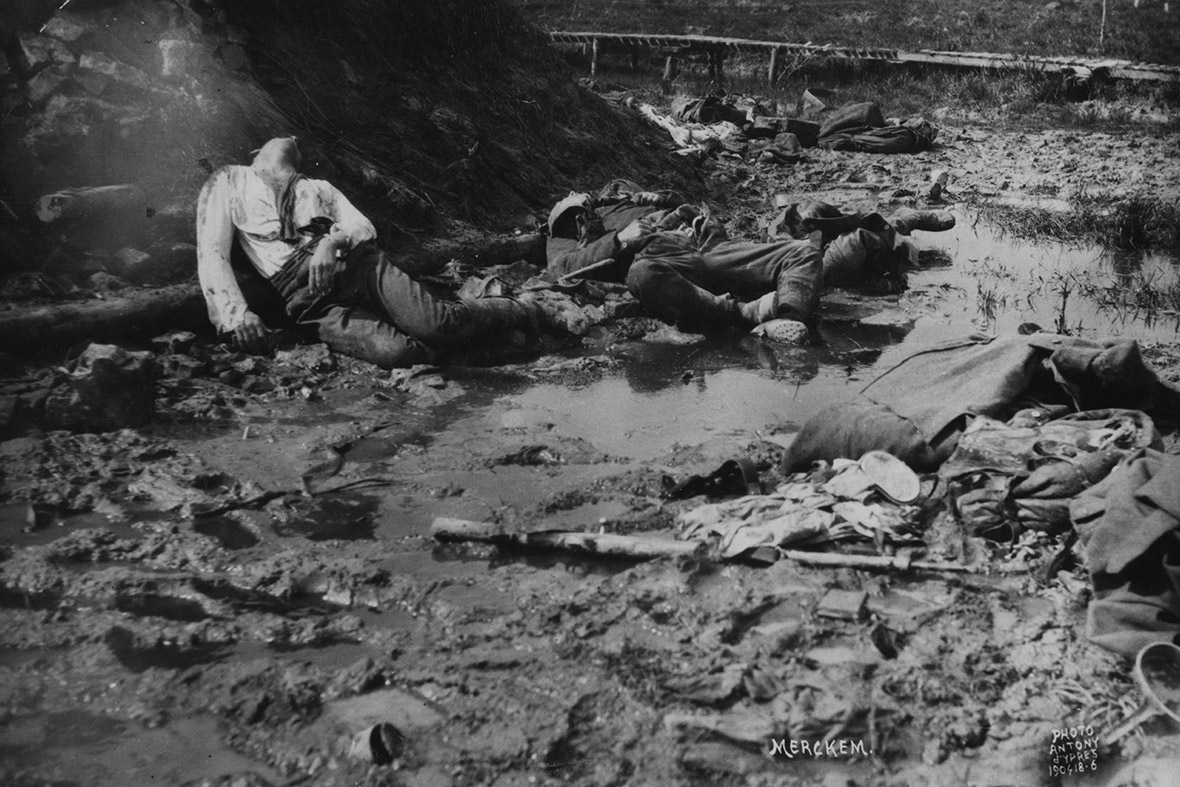 19 April 1918: Soldiers lie dead in the mud on a battlefield during the Lys Offensive, also known as the Fourth Battle of Ypres. Getty
19 April 1918: Soldiers lie dead in the mud on a battlefield during the Lys Offensive, also known as the Fourth Battle of Ypres. Getty
With respect for those who fought & Died in Two World Wars
For all the victims, and for the victims of all wars past & present
Remembering the human cost of war, not the financial or political cost of warfare.
Remembering every animal not given a choice, each one a tragic victim
of wars past and present
Lest we forget
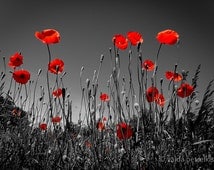
A big thank you to Wendy Kelly, Coventry, UK, a Care2 member who sent me the pictures and captions
7 Responses to “In Flanders Fields”
Sorry, the comment form is closed at this time.

Thank you.
A remembrance worthy of the name–thanks.
Very nicely done. I especially appreciated the old photos. Sad that it didn't live up to its moniker of “The War to End All Wars”.
Send a special “Thank you” to Wendy Kelly for sharing it.
"War is hell," and we humans create that hell, all by our fucking stupid selves!
RIP!!!!
Thank you, Lynn for this.
Amen Squatch!
Thanks, Lynn, we all need to see these photos and others to remind us of the sacrifices that have been made.